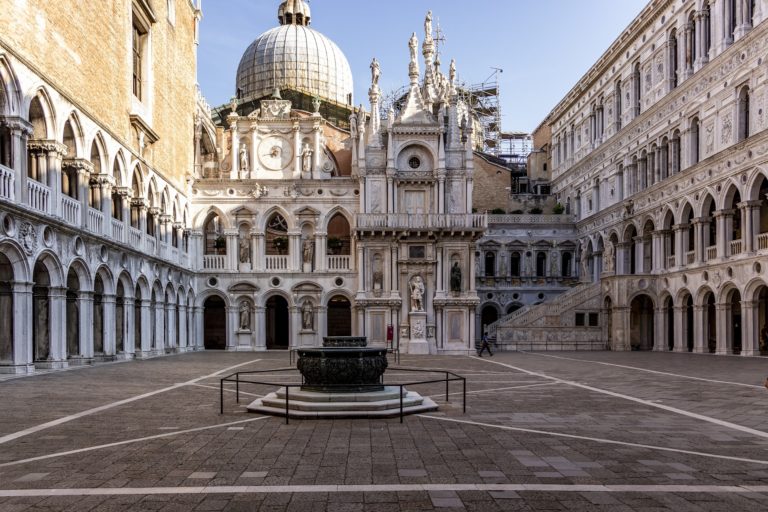“Francesco Foscari is a liar and says things without any foundation.” These words were addressed with contempt to Francesco Foscari by his predecessor Tommaso Mocenigo in the year 1420.
Foscari would later be the Doge who remained in office for the longest time in the history of Venice for 34 years in power. The distrust demonstrated by Mocenigo would have been justified in retrospect.
But let’s go back for a moment; the Palazzo Ducale was for a long time made up of two separate buildings, one the seat of government, the other of justice, and the latter, in 1422, when Mocenigo was in power, was in very poor condition. There was voices of demolishing it, rebuilding and unifying the two buildings into one, creating more space for this wonderful courtyard. However, such enormous amounts of money had already been spent on renovating and decorating the Palace, that anyone who dared to even propose an addition or modification would face huge fines.
Tommaso Mocenigo paid the fine and proceeded with the unification of the building. Unfortunately he died before it was completed and Francesco Foscari, now Doge, finished what Mocenigo had started, essentially taking the credit for it. Foscari didn’t stop there either; being immensely rich, he could and liked to think even bigger, so he built the sumptuous Arco Foscari next to the large staircase in the courtyard, giving it his name. The Palazzo Ducale is, however, still largely Gothic in style and the older structure is alive in the brick walls surrounding the two sides of the courtyard; it is an austere reddish simplicity that is in harmonious contrast with the white columns, arches and decorations that frame the many windows on the newer sides built during the 15th century, especially during Foscari’s time. And it is these sumptuous Renaissance additions that show how rich and sumptuous the Venetians loved to be. As one Venetian historian observed just over a century ago, “the bronze heads in the courtyard are a fitting tribute to our ancestors,” who spared no expense to ensure that the seat of the Republic was worthy of the name and power of enjoyed in that century from one end of the Earth to the other.”







